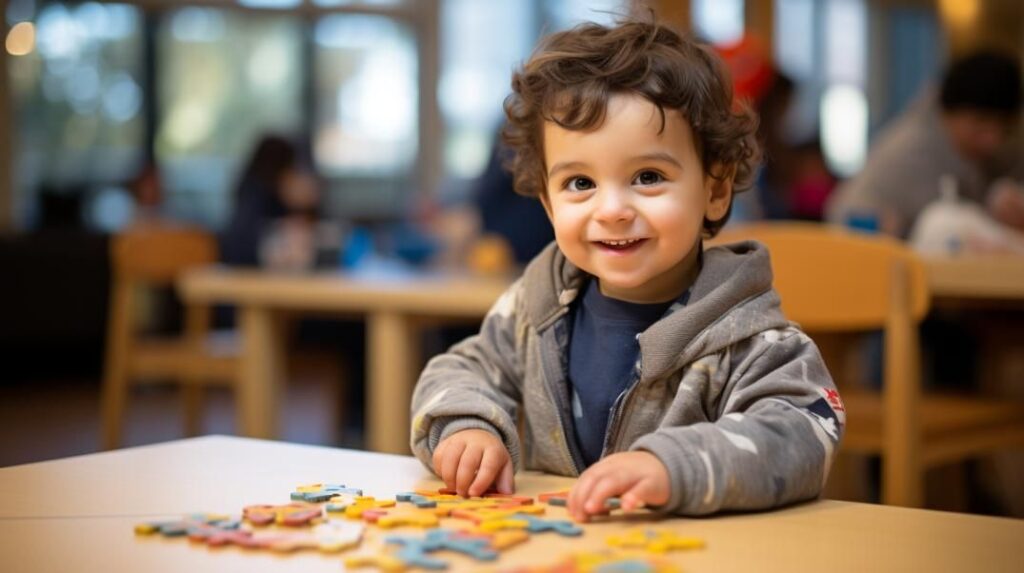As parents, our natural instinct is to protect our kids from harm, disappointment, and failure. We want to swoop in to solve problems, remove obstacles, and ensure success. However, experts agree that allowing children to fail sets them up for greater success down the road.
Through my work, I’ve seen the consequences of overprotective parenting. Children become dependent, lack confidence and problem-solving skills, and crumble at the first sign of challenge. They expect others to handle difficulties so they never learn to cope with failure.
I learned this lesson firsthand with my 8-year-old daughter. When she struggled to make friends at her new school, my impulse was to intervene. However, I knew she needed to find her own way.
She eventually made friends by joining an art club. Failing to connect at first taught her skills she’ll use her whole life: how to put herself out there, persist through disappointment, and solve her own social problems.
Though it can be difficult to watch children stumble, failure equips them with essential life skills. Instead of shielding kids from failure, we must teach them to see it as part of learning.
Use the ideas in this guide to let your children fail while building resilience and independence.
Why Failure Matters

Failure gets a bad rap in today’s success-obsessed culture. But the truth is, failure is a critical stepping stone to achievement and well-being.
When we deny children opportunities to fail, we set them up for struggles down the line. Here’s why failure matters:
Develops Resilience
Resilience is the ability to bounce back from hardship and adapt to challenges. It’s a vital skill for handling life’s inevitable ups and downs.
Resilience only grows through experiencing difficulty – you can’t teach it by eliminating failure.
Children who overcome failure build coping strategies and learn they can recover. This “stress inoculation” strengthens their ability to manage future adversity.
On the other hand, shielding kids from failure leaves them ill-equipped to handle challenges. At the first bump in the road, they crumble.
Builds Confidence
Confidence comes from competence – genuine self-trust developed through mastering skills. When children solve problems for themselves, they realize “I can handle this!” This builds internal confidence kids carry for life.
But when parents fix every issue, children learn dependence – the opposite of confidence. They become afraid to try new things or make decisions, doubting their abilities.
Letting kids fail helps them build real competence to fuel confidence.
Teaches Self-Reliance
Children who solve their own problems become more self-reliant or able to fend for themselves. They learn helplessness when parents swoop in at the first hint of struggle.
Facing difficulties helps kids recognize their ability to cope, think critically and overcome challenges independently.
Develops Coping Skills
Experiencing failure helps kids build their “coping toolbox” – the strategies, perspective and skills that help manage stress.
For example, after losing a sports match, a child might analyze their mistakes, get encouragement from a coach, then commit to practicing harder.
Through repeated coping, children become more resilient in the face of adversity.
Allows Natural Growth
Just like learning to walk, failure is essential for developing natural competency. If parents prevent failure, children miss out on organic growth that occurs through trial and error.
Letting kids fail creates space for growth that scaffolding and hand-holding limit. Children build more skills when given room to try, mess up, learn and try again.
Fosters Motivation & Persistence
Bouncing back from failure teaches kids that setbacks are temporary. They realize persistence pays off – don’t give up at the first failure!
Every time children overcome a challenge, it motivates future perseverance. But if parents remove obstacles, children learn to quit when met with resistance.
Promotes Emotional Intelligence
Emotional intelligence is the ability to understand and manage emotions effectively. Failure presents opportunities to build these skills.
Children learn to cope with frustration, analyze their mistakes, recognize when to ask for help, and process disappointment.
Dealing with failure also teaches empathy when children comfort peers who are upset over challenges.
Builds Problem-Solving Skills
When parents fix problems for kids, children never learn to resolve issues independently.
Problem-solving is a learnable skill developed through practice – something children can only get by facing difficulties head-on.
Failure provides crucial opportunities to build critical thinking, evaluate solutions, and learn from mistakes.
The benefits of failure are clear. So how can parents put these ideas into action? Use the supportive strategies below to let children learn through failure.
Creating Manageable Failure Experiences

While failure is beneficial, too much too soon can be overwhelming for kids. Parents must strike a balance between protection and independence.
Use these tips to create manageable failure experiences tailored to your child’s needs:
Start Small
Don’t toss kids in the deep end! Begin by allowing failure in low-stakes situations with natural consequences.
For a young child, that may be choosing an outfit that clashes. For a tween it could be forgetting their homework – they’ll get a zero but can do better next time.
Meeting small failures first builds coping skills to handle bigger challenges down the road.
Consider Age & Maturity
Factor your child’s age and developmental readiness into the types of failure you allow.
Early elementary kids have less impulse control and perspective than tweens. Failures should be appropriate for your child’s level of maturity.
For example, letting a 6-year-old walk home alone from school would expose them to failure they aren’t yet equipped to handle.
Personalize it
Think about your child’s unique personality and abilities when deciding how much failure to allow. A perfectionist child may need smaller doses of failure to avoid excessive stress.
An impulsive child likely needs more opportunities to experience consequences.
Kids also need different levels of parental support – gauge your involvement accordingly.
Don’t Rescue
When failure happens, step back and let your child work through it. Avoid jumping in to fix the issue or soften the blow.
Children learn more when they independently grapple with challenges instead of relying on parents to swoop in.
Offer support, but let kids take the lead in overcoming failure.
Model Healthy Responses
How you handle setbacks yourself sets an example for kids. Model resilience – stay calm, acknowledge disappointment, and focus on solutions.
Highlight the gift in the mistake – what can be learned here? Your composure and perspective will teach kids how to healthily process failure.
Try Again
Don’t let a failure be the end of the road. Give kids the chance to try again after stumbling. That teaches the failure is temporary – with effort and learning, they can succeed next time.
Praise perseverance, not just accomplishment. Celebrate the effort, not just the outcome.
Don’t Over-Schedule
Today’s overscheduled kids lack the free time to play around with ideas, test limits, and learn from mistakes.
Failure-proofing occurs when parents tightly structure children’s time, shuttling them between activities.
Leave room for experimentation, boredom and unstructured play where failure naturally occurs.
Don’t Help Too Much with Projects
When parents overly involve themselves in school projects and tasks, kids miss out on learning and satisfaction. Offer guidance, not direct assistance.
Instead of fixing mistakes, help children recognize errors themselves. Let them choose to redo parts instead of making it perfect for them.
Don’t Fight All Their Battles
When parents handle peer conflicts, fight disciplinary battles with teachers, or call coaches to complain about playing time, kids learn to let others fix their problems.
Give advice when needed, but encourage kids to resolve issues, advocate for themselves, and accept consequences.
Allow Natural Consequences
Let your child experience reasonable outcomes of their actions without swooping in to rescue them.
When a teenager stays up too late and is tired the next day, don’t allow sleeping in and missing school.
Natural consequences provide meaningful lessons. Shielding youth from outcomes stunts learning.
Share Your Own Struggles
Kids often think they are the only ones who struggle. Sharing stories of your own failures and vulnerabilities models that everyone experiences setbacks.
Talk about mistakes that taught you important lessons. Your openness will comfort kids when they fail.
Common Parenting Pitfalls to Avoid

While failure is healthy for kids’ development, certain parenting behaviors prevent children from learning through failure. Watch out for these common pitfalls:
Hyper-Focusing on Achievement
Today’s overemphasis on performance pressures kids to succeed at all costs. This anxiety fuels fear of failure.
Place more value on effort, improvement, and balancing activities than outcomes alone. Praise courage, not just success.
Overparenting
Parents who micro-manage, over-schedule, and rush to children’s aid at any struggle rob kids of opportunities to try and err.
Give them space to explore interests (and fail) instead of shuttling them between lessons. Let them grapple with challenges on their own terms.
Harshly Criticizing Failure
If parents levy intense criticism when kids make mistakes, children become failure-averse. React calmly and refrain from shaming.
Teach that missteps help us learn. Use gentle guidance to correct course but don’t attack their character.
Modeling Fear of Failure
Kids pick up on parents’ anxieties and perfectionism. If you have an intense fear of failure yourself, children absorb the message.
Be aware of the example you set. Show kids that failure is part of the journey by sharing your own stories.
Sheltering from Pain
While no parent wants to see a child hurt or upset, emotional pain is inevitable. Let kids feel sadness, frustration, disappointment and anger sometimes.
Support them through it so they build coping skills. Don’t try to insulate kids from all discomfort.
Living Vicariously
When parents put their own egos and dreams for success onto children, it breeds anxiety about failure.
Give kids space to explore their own interests – even if that means allowing activities you don’t understand or value.
Separate your own self-worth from their accomplishments.
Being Overly Critical
Parents who pick apart children’s mistakes and performances convey the message that failure isn’t allowed. Ease up on criticism.
Focus on effort and improvement, not flawless results. Foster growth mindsets about failure.
Not Allowing Natural Consequences
Rescuing children from facing outcomes of their actions removes learning opportunities. Don’t hover and interrupt life lessons.
Instead, use failures as teachable moments to discuss better choices next time. Allow reasonable consequences instead of protecting kids from them.
Negatively Labelling Failures
How parents talk about failure influences kids’ mindsets. Don’t use words like “lazy,” “careless,” or “pathetic” when they make mistakes. Reframe setbacks in a growth-oriented way – as learning opportunities.
The takeaway? Effective failure for kids is manageable, age-appropriate, and supported with care. Use failure to teach, not punish.
With the right framework, children learn vital lessons from falling short. The experience equips them with priceless skills to better navigate the joys and pitfalls of life.
Frequently Asked Questions About Letting Kids Fail
To wrap up this comprehensive guide on overcoming the fear of failure, here are some common questions parents have about letting kids fail.
Is it ever harmful to let kids fail?
While failure is healthy, children can still be overwhelmed or disheartened by inappropriate levels of failure. Drop kids in the deep end too soon or take a completely hands-off approach and children may unnecessarily suffer. Find a healthy balance between independence and parental support.
How much failure is too much?
Pay attention to your child’s signals. If kids become extremely distressed by failures often, dial it back. Failure should stretch abilities, not crush self-esteem. Signs a child is experiencing too much failure include anxiety, avoidance, meltdowns, giving up easily, or self-shaming.
Won’t constant failure undermine my child’s confidence?
The key is framing failure as normal and helpful versus devastating. Children with supportive parents learn to brush off setbacks. Boost confidence by emphasizing courage over perfect results. Share your stories of overcoming failure. Praise progress, not just success.
When is it appropriate to step in and help?
Parents shouldn’t do the hard work for kids but can offer age-appropriate assistance. For example, elementary kids need more hands-on guidance while teens likely just need moral support and problem-solving help. Step in if your child is truly stuck or on the verge emotional breakdown.
Should I let my straight-A child risk academic failure?
Even “gifted” kids need to learn perseverance and coping skills. Don’t reduce academic rigor because it comes easily. However, don’t overload honors and AP classes either. Make sure some assignments require struggle without crushing self-esteem.
I was raised to “not accept failure” – how do I change that mindset?
If you were raised to see failure as catastrophic, it requires work to view failure more positively. But overcoming unhealthy beliefs about failure helps your child and you! Try therapy, self-help books, positive affirmations, or surrounding yourself with growth-minded people.
How can I help a child who is devastated by failure?
Empathize with their feelings, then gently shift perspective. “I know you’re disappointed. I’ve felt like that too! But this one test won’t define you. Let’s look at what went well and make a plan to improve.” Discuss how failure teaches life lessons. Help kids see they have so much value outside of achievements.
Isn’t it important to hold kids to high standards?
Yes, have high but realistic standards focused on effort, not innate talent alone. Say “I know you can achieve this if you keep at it,” not “you must succeed.” Unattainable expectations set kids up for failure. Have high standards but don’t withdraw love when children inevitably fall short. High standards precipitate growth; perfectionism does not.




